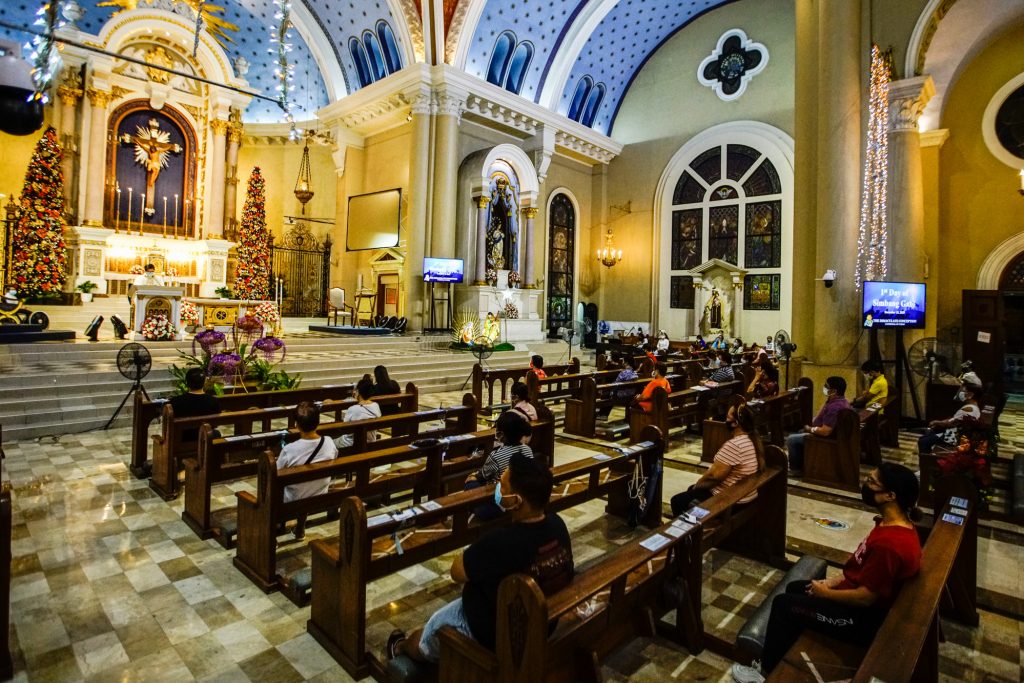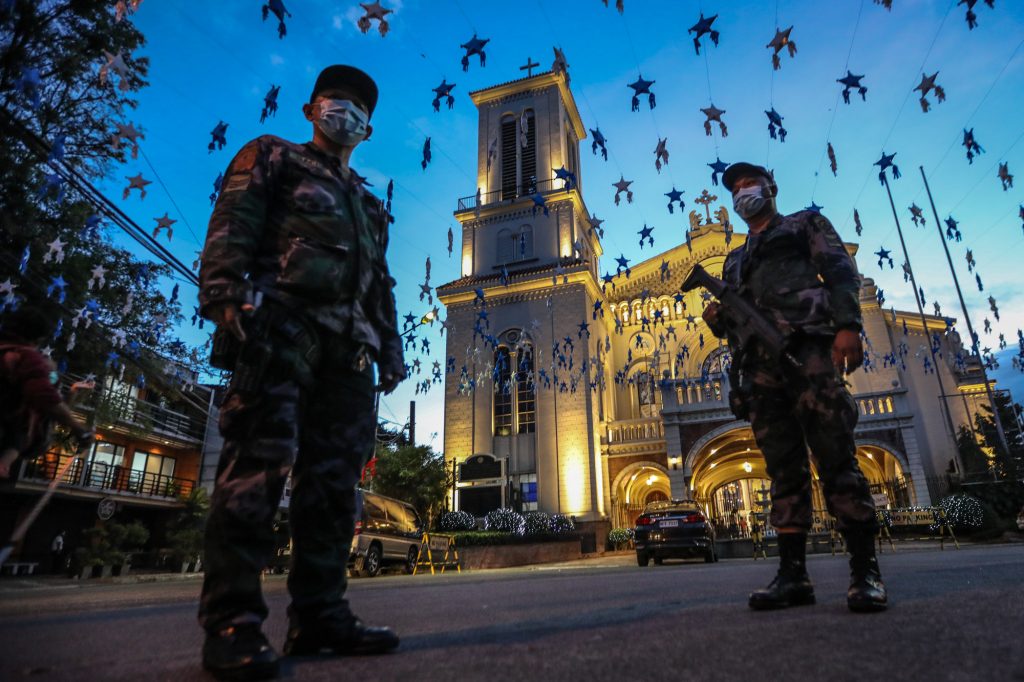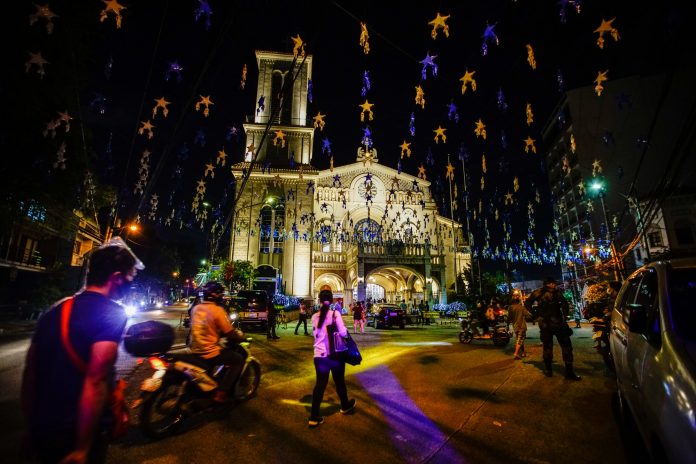Filipinos flocked to churches across the country on December 16 to usher in Christmas with the traditional nine-day “Misa de Gallo” (Spanish for “Rooster’s Mass”) and “Simbang Gabi” (anticipated evening Mass).
The “Misa de Gallo” is a practice introduced by Spanish friars in the 17th century to agricultural communities for farmers to attend Mass before heading off to the fields early in the morning.
This year, despite warnings of the threat of the coronavirus pandemic, Filipinos trooped to churches to attend the early morning celebrations.
“There were many people,” said Bishop Broderick Pabillo of Manila, admitting that church officials had difficult time controlling the flow of people outside church compounds.
“In general the people are following instructions,” said the apostolic administrator of the Archdiocese of Manila. “But we have we do not have the authority to control people in the streets.”
Bishop Honesto Ongtioco of Cubao said the atmosphere “in general was very good” and the health protocol are “very strict.”
Christmas in the Philippines is the longest celebration of the birth of Jesus in Asia.
The festivities begin on December 16, when the first of the nine special Masses are offered, and continue until January 6, the feast of the Epiphany.
The first few pre-dawn Christmas Masses are usually jam-packed before the pandemic. But as the urge to sleep prevails, the numbers drop.
On the last day, December 24, the crowds are back.

Traditionally after the morning Mass, older people who attend wake the children and give them special snacks.
In the evenings, people sit at home and wait for groups of neighborhood children to sing carols at the door.
This year, many opt to attend online Masses due to health restrictions brought by the pandemic.
Bishop Pabillo, however, assured that people attending online celebrations will receive the same blessing as when they take part in the Eucharistic celebration in church.
“If we’re talking about the grace of God, they will receive, their devotion, it’s the same,” said the prelate.
“They attend dawn Masses as sacrifice. If we do it for God, He understands our situation. He understands our intention to offer sacrifice to Him. He knows that,” said the Manila bishop.

The Philippine National Police assured the public that officers will be vigilant throughout the holiday season.
National Police chief Gen. Debold Sinas said the first “Simbang Gabi” was “generally peaceful” and “orderly” based on field reports from across the country.
“Everything went well on Day 1. We expect it to be better on Day 2, and perhaps even perfectly best in the rest of the nine days until Christmas and through the New Year,” he said.









